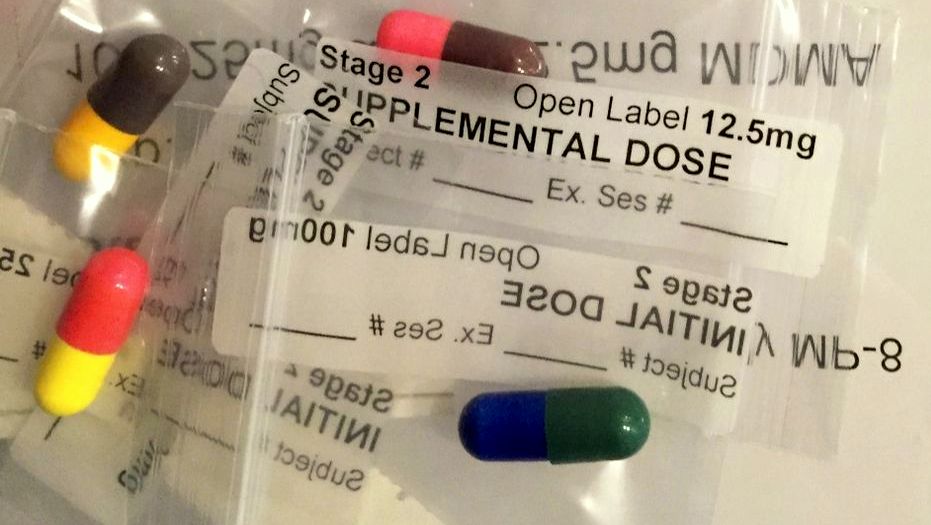This week, the Multidisciplinary Association for Psychedelic Studies (MAPS) announced the FDA’s August 16 decision to designate MDMA as a breakthrough therapy. Along with this designation, the FDA has approved Phase 3 trials to test the effectiveness of the drug in treating PTSD.
According to a press release from MAPS, which has lobbied for the medicinal use of MDMA since 1986, the “breakthrough” status may lead to quicker approval for the substance. MAPS has already conducted smaller Phase 2 trials, and the FDA evidently found the results promising enough to warrant further study.
In MAPS’ completed Phase 2 trials with 107 participants,” the organization summarized, “61% no longer qualified for PTSD after three sessions of MDMA-assisted psychotherapy two months following treatment. At the 12-month follow-up, 68% no longer had PTSD. All Phase 2 participants had chronic, treatment-resistant PTSD, and had suffered from PTSD for an average of 17.8 years.”
The next phase of trials will commence in spring of 2018.
The Phase 3 trials will assess the efficacy and safety of MDMA-assisted psychotherapy in 200-300 participants with PTSD, aged 18 and older, at sites in the U.S., Canada, and Israel,” MAPS explained. “Participants will be randomized to receive three day-long sessions of either MDMA or placebo in conjunction with psychotherapy over a 12-week treatment period, along with 12 associated 90-minute non-drug preparatory and integration sessions.”
Phase 3 trials
Phase 3 trials are the last clinical testing period before a drug is allowed to go to market, though additional testing is conducted after the fact. MAPS says that if the Phase 3 testing yields promising results, the drug could be available to the public by 2021.
Related | Researchers Are In The Throes Of A Psychedelic Revival
MAPS, based in Santa Cruz, California, has lobbied on behalf of the therapeutic uses of MDMA since 1986, a year after the DEA deemed it an illegal substance, Science Mag notes. The group has poured millions of dollars into trials to study the drug’s potential and has hope it may be particularly useful for war veterans suffering from PTSD. They have also invested in research to study other problems it could help treat, such as social anxiety. MAPS’ executive director, Rick Doblin, believes the FDA’s approval to move forward in official testing demonstrates MDMA’s possibilities. He says it’s “kind of a public acknowledgment of the promise of this research.”
Similarly, David Nutt, a neuropsychopharmacologist at Imperial College London, said
This is not a big scientific step. It’s been obvious for 40 years that these drugs are medicines. But it’s a huge step in acceptance.“
In a piece exploring the psychological benefits of psychedelics in general, Rolling Stone noted that though some studies have found brain damage in chronic ecstasy users, a Harvard Medical School examination of Mormons who used the substance — and no others — “failed to find cognitive consequences.” The outlet also notes that “safety studies of the dosages used in MDMA therapy have found no evidence of neurotoxicity or permanent changes in serotonin transporters.”
MAPS notes that MDMA “transiently increases heart rate, blood pressure, and body temperature in a dose-dependent manner that is generally not problematic for physically healthy individuals,” also adding that “Serious Adverse Events involving administration of MDMA in MAPS studies have been uncommon and non-life threatening.” Still, side effects do include dehydration — which, in extreme cases can cause death — as well as nausea, sweating, and chills.
Though drug warriors may balk at the idea of a Schedule I substance being used to treat PTSD (cannabis, another Schedule I drug is also proving effective), it is clear that current treatments, especially those the VA administers to veterans, are not solving the problem. Prescription cocktails often worsen symptoms and fail to help users process their trauma. In contrast, when used in a clinical setting with professional guidance, MDMA — which was used in therapeutic settings before it was outlawed — is believed to help those struggling with PTSD delve into the root causes of their suffering.
Indeed, as Popular Science observes, “[t]he FDA only grants breakthrough status when a medication (for a serious disease) is likely to offer significantly better results than currently available treatments.” Unsurprisingly, the agency has approved trials for cannabis in treating veterans with PTSD.
MAPS is working to raise $12.5 million to meet the roughly $25 million total the Phase 3 trials are expected to cost and plans to launch a similar effort with the European Medicines Agency.
Top photo: Contolled doses of Ecstasy (MDMA) pills used in drug trails are shown. (Photo: MAPS)
![]() The Anti-Media is licensed under a Creative Commons Attribution-NonCommercial-ShareAlike 3.0 International License.
The Anti-Media is licensed under a Creative Commons Attribution-NonCommercial-ShareAlike 3.0 International License.


